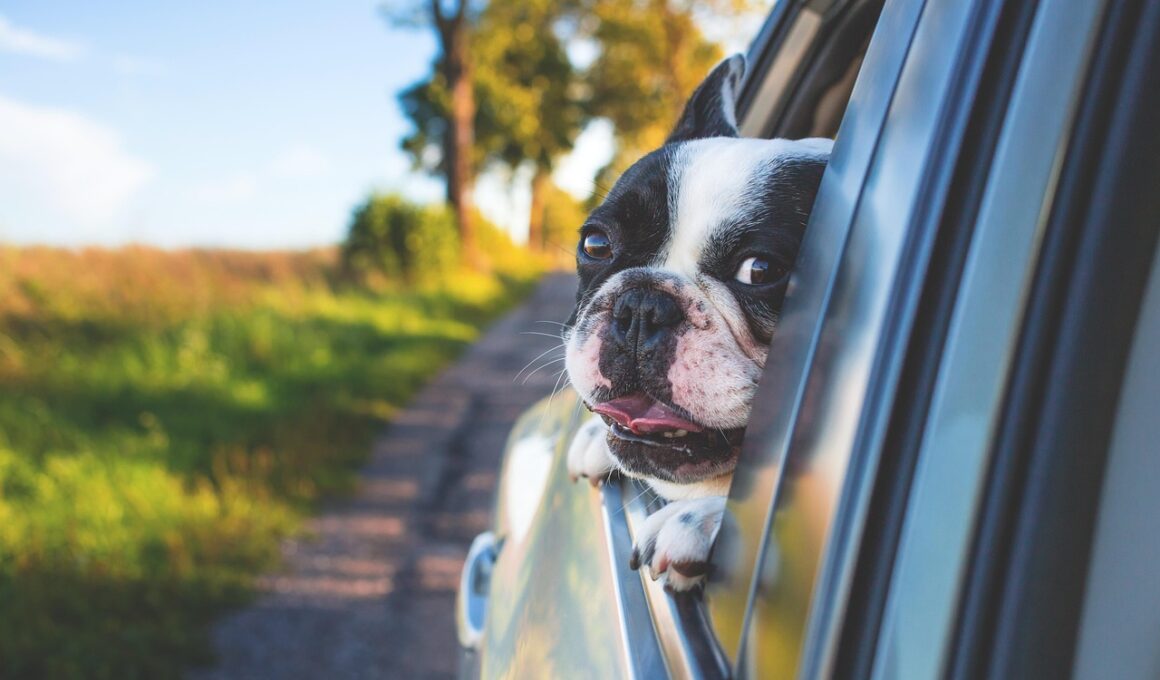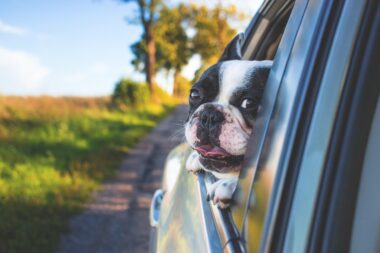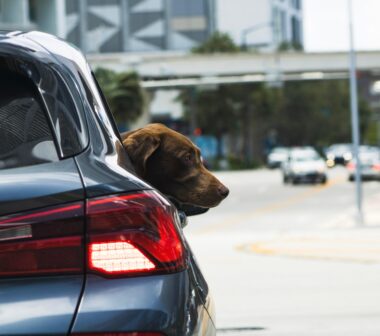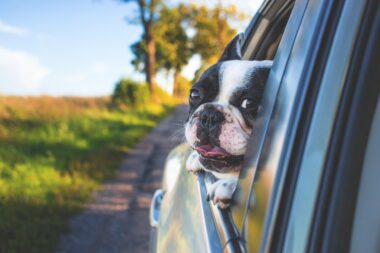Health Precautions Before Traveling with Multiple Dogs
Traveling with multiple dogs is a delightful yet demanding adventure. It requires thorough preparation to ensure that all dogs are safe, happy, and healthy during travel. One of the first steps is to ensure that all your dogs are up to date on vaccinations. Consult your veterinarian to check if they require any additional vaccinations for specific destinations. Some states and countries have stricter requirements than others. Additionally, it’s essential to carry health records for each dog, which may be necessary for accommodations or veterinary services along your journey. Make sure they are all microchipped, as this allows for easy identification should any dog get lost. Regularly prompted health checks and parasite prevention measures should not be overlooked. Flea and tick treatments are crucial before traveling, particularly in areas known for outbreaks. Ensure that your dogs are in good health, free from illness, and fit for travel. Before you set off, also consider the travel carriers and harnesses you will use to secure your pets during the journey, ensuring safety throughout your travel experience.
To maximize the safety and comfort of your dogs, planning the travel route is also critical. Investigate pet-friendly accommodations and ensure they allow multiple dogs. Make reservations in advance for restaurants and transit options, confirming that they are also accommodating for pets. It’s advisable to plan regular stops if you’re going on a long trip to give your dogs a chance to stretch, relieve themselves, and hydrate. Hydration is essential, so pack plenty of water along with a portable dish. It’s also a good idea to have familiar items like toys and blankets for comfort. Additionally, prepare a first aid kit designed specifically for dogs. This kit should include essential items such as antiseptic, bandages, and any medications your dogs take. Keep the medical kit handy and know how to use the items contained within it. You might also want to familiarize yourself with the nearest veterinary clinics along your route to ensure help is available if needed. Instilling comfort and security will help to keep your dogs calm throughout your travels.
Behavioral Preparations for Trips with Dogs
Consider each dog’s personality and experience during trips when planning. Not all dogs react the same way to new environments and travel situations. Some may be excited and curious about traveling, while others can be anxious and fearful. Gradually introducing your dogs to the idea of travel can help; take them on short trips before embarking on longer journeys to see how they react. Training commands related to traveling should also be reinforced, making sure your dog obeys commands such as sit, stay, and heel during travel. Contact a professional trainer if you’re unsure how to prepare your dogs behaviorally. Providing a comfortable and secure space in the car is crucial. Consider using the right crates or harnesses designed specifically for car travel. In addition to safety, dogs should feel secure to alleviate anxiety during the journey, as shifts in travel routines can affect their behavior. A satisfied and calm dog is much more manageable and makes the journey enjoyable for everyone involved.
In preparation for your travels, you should also consider your dogs’ diet. Maintaining consistent feeding schedules will benefit their overall health and comfort. When traveling, pack enough food to last through your trip in airtight containers, along with dishes for feeding. Introducing new foods just before or during travel may lead to digestive issues. Additionally, maintain a routine that includes meal times similar to those at home for stability. Monitor your dogs’ water intake to prevent dehydration, especially during busy travel days. Always ensure that your dogs have access to fresh water, particularly during road trips. Dogs can experience motion sickness just like humans; if you suspect this might be an issue, you may need to discuss treatment options with your vet prior to traveling. Knowing your dog’s specific needs will go a long way in preventing issues during your trip. Traveling can be overwhelming for dogs, so maintaining a sense of normalcy through their diet is essential when embarking on these adventures.
Travel Essentials for Multi-Dog Trips
Creating a travel essentials checklist for multiple dogs will ensure you’re well-prepared. Begin with selecting high-quality dog carriers or crates for secure transportation. While traveling, ensure that each dog has a designated space to minimize stress. Don’t forget to pack leashes, collars, and identification tags for each pet, ensuring everything is clearly labeled with your contact information. Also, consider bringing along training tools such as treats and clickers to encourage good behavior during travel stops. When packing, include a variety of toys and comfort items to entertain your dogs, as well as to help them feel more at ease during the journey. Be mindful of potential travel delays by keeping your dogs stimulated and calm. Training in advance can help establish expectations for their behavior, which should create a more pleasant experience for everyone. Additionally, consider bringing bedding for the car and wherever you might stay. Having a familiar scent helps dogs feel secure. Proper organization and preparation lead to a smoother travel experience, ultimately leaving more time for fun adventures ahead.
Keeping your dogs’ health in check during travel is essential, so consider how to monitor their well-being. Observe how each dog is adapting to travel, looking for signs of distress or discomfort. Behavioral changes, such as excessive barking or restlessness, can indicate anxiety or stress. Intervening promptly can mitigate issues before they worsen, so monitor their body language diligently. Make time for stretches and breaks during long drives to maintain their energy levels. Regularly checking on your dogs will reinforce a connection, ensuring they feel supported through the journey. If a dog appears unwell, respond appropriately by contacting a local vet for advice or service. Also, be aware of your travel destination’s weather conditions, as extreme temperatures can affect your dogs’ comfort and safety. During hot weather, make sure to never leave dogs unattended in vehicles and look for shady areas during outdoor excursions. Being proactive and attentive can minimize health risks, establishing a happier experience for both you and your furry companions while exploring new places together.
After the Journey: Post-travel Care for Dogs
Once your travel adventure concludes, it’s crucial to monitor your dogs for any signs of stress or illness. Post-travel care includes providing familiar environments to help them readjust to their daily routines. Continue hydration post-travel and allow dogs plenty of time to recover from the excitement. Pay close attention to their sleeping patterns, as disruptions in travel sometimes lead to temporary changes. Evaluate their condition, ensuring they did not pick up any pests or health issues during the trip. It’s wise to perform a full body check, examining for ticks or other irritants. If you notice anything unusual, consult a vet for guidance. Maintaining preventive treatments for fleas and ticks is essential, especially after returning home from travel. Additionally, provide extra affection and attention as they readjust, resulting in an eager bond with you. Their health and happiness after travel warrant consideration, emphasizing the importance of regular vet visits, vaccinations, and discussions with professionals about travel-related preventive measures for future journeys. Creating enjoyable experiences leads to better traveling dynamics for both you and your precious companions.
Keeping a travel journal for experiences spent with your dogs can be beneficial for future trips, thus fostering wonderful memories. Note down the highlights of your adventures, including any health concerns faced or modifications made during your travels. Sharing your findings in travel forums or with other dog owners can also help improve future trips. Collecting tips, from pet-friendly locations to health advice, provides a support network for other travelers. Reflecting on both positive and negative experiences allows customization of future travel plans tailored to suit your dogs’ needs. Taking pictures along with your journal can capture these memorable moments, enriching your relationship with your dogs. Allowing them to experience various environments can lead to better socialization. By track of their growth and comfort level during travel, you’ll create better adventures ahead. Therefore, documenting your travels and interacting with fellow dog enthusiasts aids in optimizing future journeys. Your journey, along with your dogs’, is a shared experience worth cherishing and improving progressively. Embracing flexibility and learning will contribute to a legacy of joyful adventures that brings fulfillment throughout the years.





